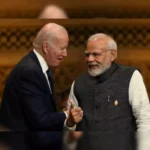In a surprising turn of events, Adhir Ranjan Chowdhury, the leader of the Congress party in the Lok Sabha, expressed his disappointment and surprise at not being informed or invited to the meeting that resulted in the selection of Gita Press for the prestigious Gandhi Peace Prize for 2021. As a member of the selection panel, Chowdhury stated that he had never been notified about the meeting or the subsequent decision, and he learned about it only through the media.
The Gandhi Peace Prize is a highly regarded accolade in India, recognizing individuals or institutions for their notable contributions to promoting peace and non-violence. The selection process involves a panel of esteemed individuals who deliberate and choose the deserving recipient. Adhir Ranjan Chowdhury’s position as a member of this panel should have ensured his participation in the decision-making process.
Expressing his surprise and dismay at being left uninformed, Chowdhury stated, “I was not even told about the meeting or the decision of giving the award. I have never been invited to any meeting. I only came to learn from the newspapers.” This revelation raises questions about the transparency and inclusiveness of the selection process, particularly regarding the involvement of key stakeholders.
Chowdhury’s disheartenment was compounded by the fact that he, as the leader of the Congress party in the Lok Sabha, represents the second-largest political party in the lower house of Parliament. Considering the Congress party’s significant presence and influence in Indian politics, his exclusion from the decision-making process is striking.
When asked whether he intended to raise the issue with the government for his exclusion, Chowdhury responded in the negative. His decision not to pursue the matter further might be attributed to a desire to avoid unnecessary controversy or potential strain on inter-party relations. However, this silence could also be indicative of deeper issues related to transparency and communication within the selection panel.
The Gandhi Peace Prize holds immense significance in recognizing and honoring individuals or organizations dedicated to peace and non-violence, aligning with the ideals propagated by Mahatma Gandhi himself. Therefore, it is crucial that the selection process upholds the highest standards of transparency and inclusivity. The current situation, with a prominent member of the selection panel left unaware and uninvited, raises questions about the overall integrity and fairness of the process.
As this news unfolds, it is essential for the concerned authorities to address the concerns raised by Chowdhury and take necessary steps to ensure that such oversights or exclusions are not repeated in the future. Open dialogue and transparency within the selection panel would help maintain the credibility and prestige associated with the Gandhi Peace Prize.
Adhir Ranjan Chowdhury’s revelation of being uninformed and uninvited to the Gandhi Peace Prize selection meeting has brought attention to potential flaws in the process. The incident highlights the importance of transparency, inclusivity, and effective communication in maintaining the integrity of prestigious awards. It is crucial that corrective measures are taken to address the concerns raised and prevent similar occurrences in the future.




